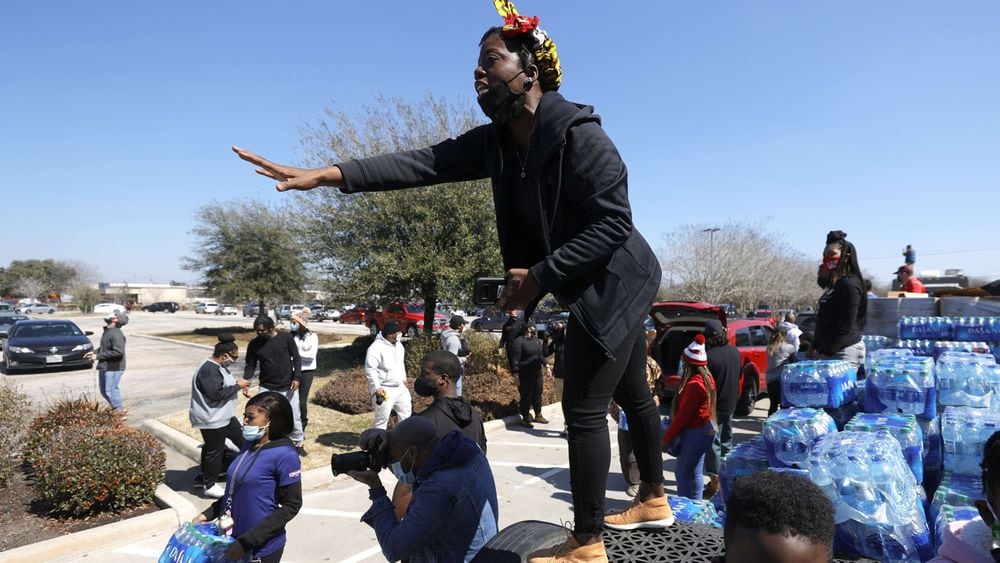In Texas, when it comes to cold, the thermometer reads 10 degrees. When talking about very cold, it can go down to two. The unusual winter storm that hit the southern state this week caused several cities to break their record for minimum temperature and in Houston – the most populous city in the state and the fourth in the country – the wind chill reached -20 degrees.
In desperation, people lit barbeque grills or got into cars in garages to try to warm up, causing some of the 30 deaths related to the cold wave. On the land of America’s leading producer of natural gas, oil and wind energy, more than four million residents suffered power outages for 72 hours and tens of thousands still remain in the dark. The collapse of the electricity grid has stirred up a debate about the state of infrastructure and among environmentalists and climate change skeptics about renewable energy.
This Saturday the streets are no longer flooded with snow and temperatures have risen, but the tragedy continues to be very present in homes. Half of the 29 million inhabitants of the State have orders to boil water (to drink it, cook or brush their teeth) due to the possible contamination derived from the broken pipes. More than 700 water supply systems had been affected. The critical situation forced hospitals to take extreme measures: a Houston medical center placed buckets on the roof to collect raindrops; in one in Austin (the capital of Texas), staff had to cover their hands with garbage bags to remove feces from the toilets. Given the lack of preventive actions and the evident precariousness of services and infrastructures, the Texan community, still incredulous at what it is suffering in the midst of a pandemic, demands an explanation from the authorities who, until now, have not been able to offer.
The worst snowfall in Texas history, with subzero temperatures at the beginning of the week across its territory (slightly higher than France), fueled unprecedented energy demand. As millions of homes turned on the heat, generators, unprepared for those levels of demand, collapsed. At the same time, the extreme cold caused the freezing of part of the equipment necessary to run the electricity grid in the State. This combination caused the 45-minute cuts that had been announced to maintain stability in the electricity grid, to be extended in some homes for more than three days. This Saturday, at least 80,000 homes and businesses remained in the dark.
Enrique Quintero, 50, did not shower for four days. With no electricity or water, she decided to stay at the furniture store she works for, Gallery Furniture. Houston’s popular 10,000-square-meter retail space this week became a haven that welcomed more than 300 people each night in search of shelter and food. Families huddled into beds for sale, some for more than $ 5,000 (4,100 euros). Others preferred to replenish sleep on the Texan leather couches, some for $ 8,000. Jim McIngvale, the owner of the business, a celebrity in the city, told this newspaper on Friday night at his business that he decided to open the doors because “people needed him. Many older adults were alone, in the dark, unable to charge their mobile phones ”. McIngvale doesn’t miss the chance: “They came here for the good mattresses.”
In one of his first press conferences since the snow started in Texas, Republican Gov. Greg Abbott charged against the Green New Deal, the plan to fight climate change proposed by the left wing of the Democratic Party. The facts “just reveal that fossil fuels are necessary,” said Abbott, alluding to the failures that caused the snowfall at wind plants. “This is what happens when the grid is forced to rely in part on the wind for its power source,” Republican Congressman Dan Crenshaw tweeted Tuesday. The Electric Reliability Council of Texas (ERCOT), the state’s overseer of electric power distribution, came out to clarify that frozen wind turbines were the “least significant” factor in the outages.
Natural gas power plants generated 46% of Texas’ electricity in 2020, according to ERCOT. Wind power, 23%; those of coal, 18%; nuclear, 11%, and only 2% was solar energy. “A state that boasts of its electricity production has left millions of its citizens frozen in darkness. He is not only incompetent, he is criminal, “accused the Democratic representative of the Texas Congress James Talarico, pointing out that the crisis was not due to a natural disaster, but to” years of insufficient investment, deregulation and negligence. “
Lack of regulation
The Texas power grid operates independently, unlike the rest of the country. The lack of regulation has allowed the southern state to host several companies that in the midst of voracious competition have come to charge half that in other territories for electricity. However, in an emergency, Texas cannot import energy from neighboring states as others often do.
From Climate Power – an independent organization that fights against climate change and environmental justice – they explain that local authorities “respond to the old influence of the oil and gas industry” and that, although it is difficult to change, this crisis is a shock to the voters. They hope that the disaster will serve to give urgency to the discussion on how to approach energy capacity for the coming decades, “with sustainable energy that everyone can trust.”
Former Republican State Governor Rick Perry argued that Texans are willing to go without power for more than three days just to keep the federal government out of the state’s power grid. Marina Martelli and Ivan Ayma, after 60 hours without electricity and water, differ. The Argentine couple moved to Texas from North Carolina in 2015, where the winters are harsh, but they have never faced a situation like this. “We never freeze like we do here,” explains Martelli, who these days slept with her husband, her seven-year-old son and their cats to generate the maximum possible heat inside a house that did not exceed zero degrees. “There is no logical reason for what happened, only the dysfunctionality of the State Administration,” Ayma reproaches, incredulous at the lack of response from the authorities.
–


